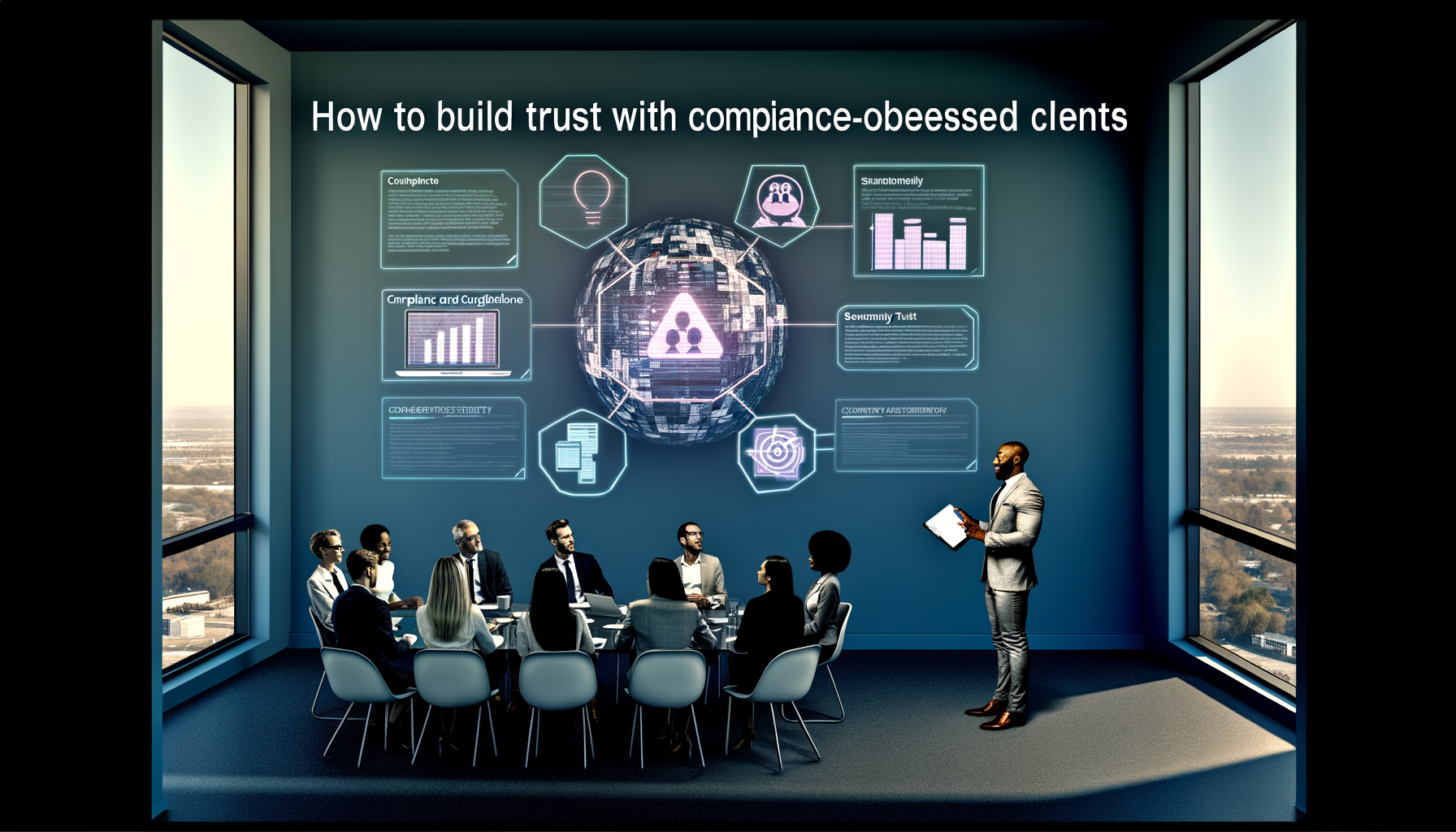
How to Build Trust with Compliance-Obsessed Clients
Building Trust in Compliance-Obsessed Industries
In my journey of developing and deploying SaaS solutions, one lesson stands out: Trust is the currency of compliance-heavy industries. It is the linchpin that holds a business relationship together, especially when dealing with clients who are compliance-obsessed. As someone who has navigated the seas of SaaS sales, I have learned firsthand that building trust with these clients isn’t just beneficial—it’s critical. So, how do we earn this trust quickly and effectively?
The Importance of Security Assurances
When selling SaaS solutions to compliance-heavy industries, security assurances are not just an added feature—they’re a necessity. Clients in these fields are often acutely aware of the regulatory requirements they must adhere to, and they need to be confident that any third-party service provider is equally committed to compliance.
Therefore, one of the first steps in trust building is to demonstrate a comprehensive understanding of their specific compliance needs and pain points. Sharing certificates of compliance, audit reports, and detailed information about security protocols can reassure clients that their data will be handled with the utmost care and diligence.
Communicating Clearly and Honestly
Trust building in any industry starts with communication, but in compliance-heavy sectors, clear and honest communication is imperative. This means being upfront about your SaaS product’s capabilities, limitations, and how these align with compliance requirements. In doing so, it’s crucial to avoid any jargon that could obscure important information.
Throughout the sales process, maintaining transparency will serve you well. It’s better to lose a deal by being honest than to win one by overpromising and underdelivering. Ensuring clients that you can also accommodate bespoke compliance needs could set your SaaS solution apart.
Leveraging Compliance-First Selling
Compliance-first selling isn’t just a strategy—it’s a mindset. This approach emphasizes understanding the client’s regulatory environment and customizing your sales technique to align with those standards from the outset. Each meeting and interaction should be tailored to showcase how your SaaS solution can meet or even exceed the compliance demands prevalent in their industry.
Consider developing a compliance-first sales script that your team can use to emphasize solutions that integrate seamlessly into existing regulatory frameworks. Regular training sessions on the changing landscape of industry regulations can also enhance these discussions, ensuring your team remains current and knowledgeable.
The Role of B2B Trust
In B2B relationships, trust functions as the foundation for long-term partnerships. I’ve often found that creating long-lasting partnerships comes from viewing the relationship as a collaboration rather than a transaction. This change in perspective can help align both parties toward a common goal.
Encourage your clients to provide feedback, and use this input to tweak your services accordingly. By showing that you value their insights, you reinforce their trust in you as a solution provider committed to their success.
Proactive Client Engagement
Building trust doesn’t stop at the point of sale. It’s maintained through ongoing client engagement. Schedule regular check-ins to review how your solution is performing against their compliance requirements and any other goals they’ve set.
- Provide proactive support and updates on new features or enhancements.
- Offer resources such as webinars or white papers that showcase the latest in compliance technology.
- Share industry insights and trends that could impact their compliance status.
Such proactive communication allows clients to feel secure in knowing that you’ve got a finger on the pulse of their industry’s regulatory environment.
Conclusion
In the compliance-heavy sectors, trust acts not just as a bond but also as leverage in enhancing business relationships and ensuring long-term success. By prioritizing transparency, embracing a compliance-first approach, and engaging proactively, SaaS companies can effectively navigate these industries.
As I reflect on my experiences, one thing is clear—earning trust in these contexts isn’t an overnight endeavor. It requires a sustained effort and a genuine commitment to understanding and supporting your client’s regulatory landscapes. For more insights on building trust and enhancing your sales strategy, I invite you to explore the resources available at Foundercrate or feel free to reach out to me directly. Let’s navigate these compliance waters together.
